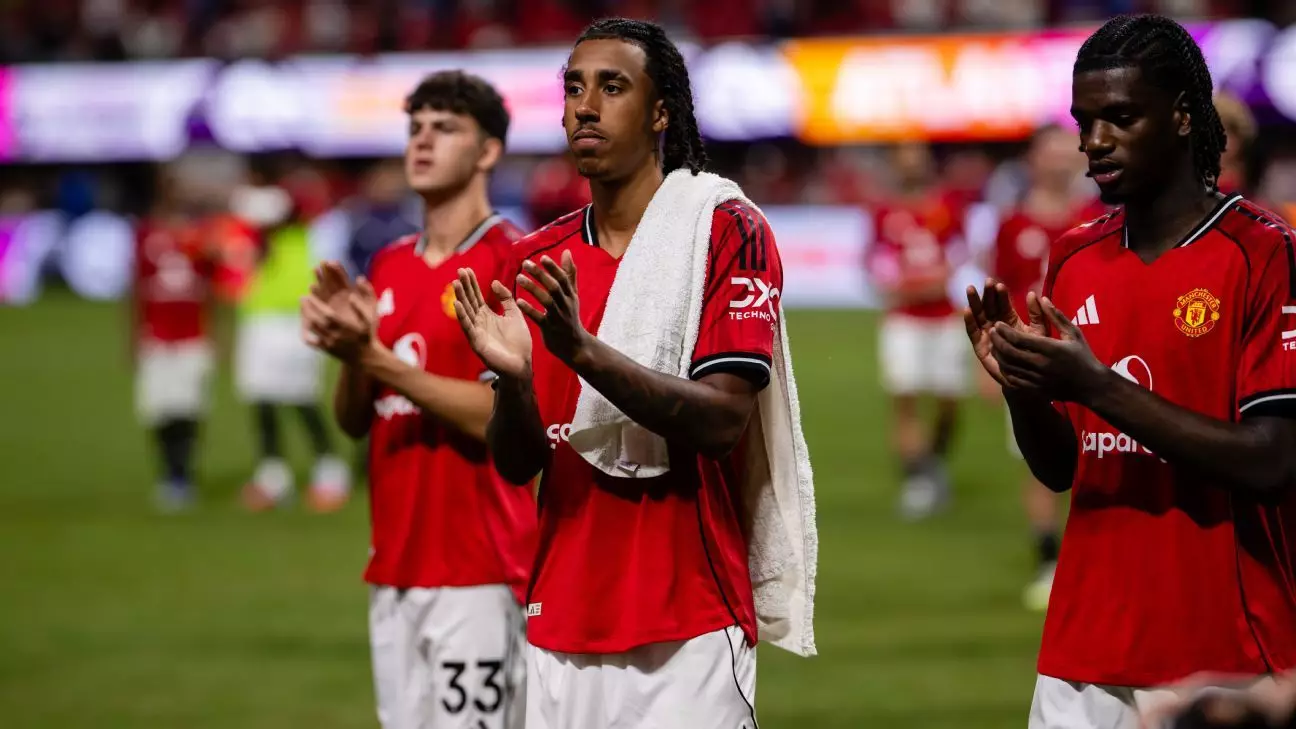Manchester United’s latest campaign was a disastrous chapter in the club’s storied history. Finishing 15th in the Premier League—its lowest position since the grim relegation days of 1974—signifies a profound failure that cannot be swept under the rug. This slide into relegation territory underscores a club crisis in both morale and performance, reflecting a failure to meet the lofty standards historically associated with Manchester United. The underwhelming season has not only disappointed fans but has also exposed deficiencies in squad strength, tactical coherence, and leadership. This collapse signals the urgent need for introspection and radical change.
The Power of Belief: Yoro’s Declaration of Revenge
Amidst the turmoil, young defender Leny Yoro emerged with a compelling statement of resilience, framing the upcoming season as a quest for revenge. His words echo a deep-rooted desire for redemption, emphasizing that United’s recent slump is a mistake that must be rectified. It’s a stark reminder that for a club of United’s stature, complacency is intolerable. The assertion that last year’s failure will be avenged sends a powerful message: expectations are high, and the squad is motivated to restore its dignity. Such confidence signals that the team is aware of the pain inflicted by the past failure and is eager to rewrite its narrative.
Offseason Movements: A Calculated Risk or a Desperate Gamble?
Manchester United’s recent transfer activity indicates a clear intent to reshape the squad. The significant investment of over £130 million to acquire talents like Matheus Cunha and Bryan Mbeumo reveals a commitment to bolstering attack and creating a competitive edge. However, buying stars alone doesn’t guarantee success—it’s the integration, cohesion, and tactical adaptability that will determine whether these signings translate into wins. There is an undercurrent of pressure to justify this expenditure quickly, as fans and critics alike expect tangible improvements from the outset of the season. If these moves fail to deliver, questions about the club’s long-term strategy will intensify, further undermining confidence.
Facing Criticism and External Scrutiny with Resilience
Amidst external skepticism, manager Ruben Amorim’s leadership will be under intense scrutiny. His initial struggles to stabilize the team have already attracted debate. Yet, Yoro’s optimism reflects a resilient mindset within the squad—an unwillingness to let external negativity derail their ambitions. The broader landscape of football is rife with criticism, but United’s players seem intent on shutting out the noise and focusing on their collective goal: restoring the club’s competitive stature. This mental toughness, paired with strategic on-field improvements, could be the critical factor differentiating this season from last year’s chaos.
Hope and Responsibility in a Storied Club
Ultimately, Manchester United stands at a crossroads. The club’s history demands greatness, and the weight of expectation is a double-edged sword—fueling both pressure and motivation. While skepticism remains, there’s an undeniable sense of hope that this squad will channel past disappointment into positive action. The players understand their responsibility not only to their fans but also to themselves—to restore the identity of a club that once defined excellence. Whether they succeed depends on their ability to harness belief, discipline, and unity, turning the tide in their favor after years of stagnation. This season could either solidify their downward spiral or mark the beginning of a triumphant comeback.


Leave a Reply